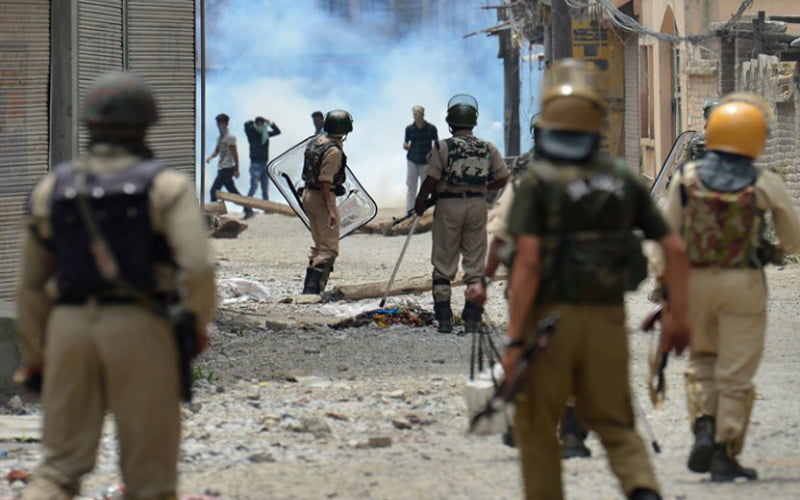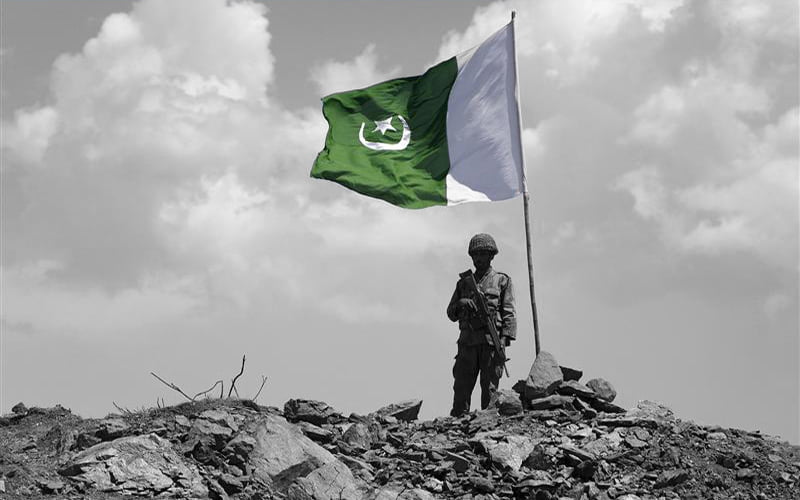
There is a shared border between Pakistan and India. India has always been a nation that values peace and has worked to keep strong diplomatic ties with other nations. However, India’s relation with Pakistan has always been in strife due to the Kashmir dispute
Kashmir is a Himalayan region with a diverse ethnic population that is famous for the beauty of its lakes, meadows, and snow-capped mountains. It is around 86,000 square miles (138 square kilometers) in size.
The region was very contentious even before India and Pakistan achieved their independence from Britain in August 1947.
Kashmir was free to join either India or Pakistan under the partition plan stipulated by the Indian Independence Act.
Hari Singh, the maharaja (local king), initially desired Kashmir’s independence; nevertheless, in October 1947, he decided to join India in exchange for that country’s assistance in repelling a Pakistani tribesman invasion.
- After a tribal army invasion from Pakistan, the Maharaja of Kashmir signs an accession pact with India in 1947. India and Pakistan declare war on one other over the region.
- A plebiscite was advised by the UN in order to decide whether the state would join Pakistan or India. However, the two countries were unable to reach an agreement to demilitarise the territory in time for the referendum.
- The region was partitioned after India and Pakistan struck a deal in July 1949 to draw a cease-fire line as advised by the UN.
- 1965 – A brief war between India and Pakistan over Kashmir ends in a truce and a return to former positions.
- In 1999, Pakistani Forces and Pakistan trained militants infiltrated the Indian-administrated Kargil area from Pakistan-administered Kashmir, sparking a new conflict between India and Pakistan. India repels the assault, holds Pakistan responsible, and cutting ties.
(Source: https://www.bbc.com/news/world-south-asia-16069078 )
Pakistan and China are close allies. China has the third-largest nuclear force in the world and the third-strongest military in the world. ( source: https://en.wikipedia.org/wiki/China#Military)
Since China is not a threat to Pakistan, Pakistan does not concentrate on building a powerful army to defend itself against China. Thus, the Pakistani army requires a justification to continue to be relevant. Although Pakistan is a democratic parliamentary republic according to its constitution, the military has held power for more than half of the country’s 74-year existence. Pakistan has been ruled by four distinct military rulers since 1947.
Despite relatively democratic power changes in Pakistan subsequently, the army’s influence on decision-making bodies has not diminished. In fact, recent events in Pakistan and the vote to remove Prime Minister Imran Khan from office raise the possibility that the influence has grown subtly.
Kashmir has been used by the army to influence civilians and demonstrate its relevance in the nation. It is obvious that Pakistan lacks the resources necessary to effectively manage and sustain Kashmir. Pakistan has been fighting big and minor wars with India ever since the split in an effort to conquer Kashmir and establish its significance.

Here are some instances of how the army plays an important role in the country’s functioning.
February 8: Avoid involving the (Pakistani) army in political matters. According to Major General Babar Iftikar, head of Inter-Services Public Relations (ISPR), the organization is completely concerned with the enormous responsibility of examining security, internal, and external threats.
On April 25, General Qamar Bajwa, the head of the army, spends seven hours briefing a group of journalists on various political topics. He tells them that the Tehrik Labaik Pakistan (TLP) will assimilate into society and engage in peaceful political activity.
The assertion that the army has no place in politics must be abandoned.
The Pakistani army has far greater influence over how the nation runs than the ruling party. Every sector, including healthcare and education, is managed by the army and functions according to their wishes. Whether a person is in uniform or not, power will always corrupt them. Because they have unrestricted authority over all parts of governance, the army is notorious for its corruption, and a lot of money is seen flowing towards them.

As a result, Pakistan views Kashmir as crucial to just prove its relevance and has made its primary goal to conquer it despite not having the resources to manage its own nation.